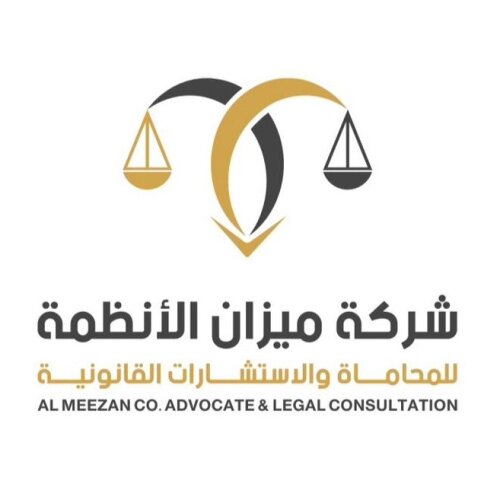Best Tax Lawyers in Makkah
Share your needs with us, get contacted by law firms.
Free. Takes 2 min.
List of the best lawyers in Makkah, Saudi Arabia
Saudi Arabia Tax Legal Articles
Browse our 2 legal articles about Tax in Saudi Arabia written by expert lawyers.
- Guide to VAT Registration for Businesses in Saudi Arabia
- For businesses operating within or expanding into the Kingdom of Saudi Arabia (KSA), navigating the requirements for Value Added Tax (VAT) is a critical aspect of financial and legal compliance. As legal advisors, understanding the intricacies of the VAT registration process in Saudi Arabia is essential for guiding clients effectively... Read more →
- How to Start a Business in Saudi Arabia
- Whether you are a local entrepreneur or an international investor, starting a business in Saudi Arabia can be an exciting and rewarding venture. However, knowing the legal requirements is crucial for a smooth, successful launch. In this guide, we will walk you through the key steps and legal issues that... Read more →
About Tax Law in Makkah, Saudi Arabia
Tax law in Makkah, Saudi Arabia is governed by the provisions set out by the General Authority of Zakat and Tax (GAZT). The tax system primarily consists of two types of taxes: the Zakat, a religious obligation for all Saudi citizens and corporation, and the Income Tax, which is levied on non-Saudi individuals and entities generating an income within the country. Makkah, as a key city in Saudi Arabia, strictly adheres to these tax regulations.
Why You May Need a Lawyer
In complex tax matters, a lawyer can be your greatest ally. They can provide assistance and advice on the payment of the Zakat or Income Tax, tax exemption queries, tax evasion penalties, or dispute resolutions with the GAZT. Additionally, tax lawyers can help you understand your rights and obligations under the Saudi tax laws and offer guidance to minimize your tax liability legally.
Local Laws Overview
Zakat is typically 2.5% of the net worth and primarily applies to entities owned by Saudi nationals. The Income tax, on the other hand, applies to foreigners and foreign-owned entities, typically at a flat rate of 20%. With the advent of VAT in Saudi Arabia recently, companies are required to apply VAT at the standard rate of 15% to all their standard-rated supplies.
Frequently Asked Questions
What are the tax obligations for a foreign citizen working in Saudi Arabia?
Foreign citizens mainly pay income tax on their earnings in Saudi Arabia, which is currently set at a standard rate of 20%.
What is the standard VAT rate in Makkah, Saudi Arabia?
The standard VAT rate in Makkah, Saudi Arabia is 15%, applicable to most goods and services.
Do Saudi nationals pay income tax?
Saudi nationals are typically required to pay Zakat rather than income tax, which is set at a rate of 2.5% on their net worth.
How to apply for tax exemption in Saudi Arabia?
Applying for tax exemptions requires submitting an application to the GAZT. A tax attorney can guide you through the process and identify if you qualify for exemptions or incentives.
What are the penalties for tax evasion in Saudi Arabia?
Penalties for non-compliance with tax laws can range from financial fines to imprisonment. They vary based on the severity and nature of the violation.
Additional Resources
The General Authority of Zakat and Tax (GAZT) is a key resource for tax-related information. The Ministry of Finance's website also provides updated information about the tax laws. Besides, law firms specializing in tax law can provide expert advice on complex tax matters.
Next Steps
If you require legal assistance for tax-related matters in Makkah, consider hiring a tax lawyer familiar with Saudi tax laws. Ensure that all tax filings are up to date and keep all financial records at hand for reference. Always seek professional advice in case of any doubts or complexities.
Lawzana helps you find the best lawyers and law firms in Makkah through a curated and pre-screened list of qualified legal professionals. Our platform offers rankings and detailed profiles of attorneys and law firms, allowing you to compare based on practice areas, including Tax, experience, and client feedback.
Each profile includes a description of the firm's areas of practice, client reviews, team members and partners, year of establishment, spoken languages, office locations, contact information, social media presence, and any published articles or resources. Most firms on our platform speak English and are experienced in both local and international legal matters.
Get a quote from top-rated law firms in Makkah, Saudi Arabia — quickly, securely, and without unnecessary hassle.
Disclaimer:
The information provided on this page is for general informational purposes only and does not constitute legal advice. While we strive to ensure the accuracy and relevance of the content, legal information may change over time, and interpretations of the law can vary. You should always consult with a qualified legal professional for advice specific to your situation.
We disclaim all liability for actions taken or not taken based on the content of this page. If you believe any information is incorrect or outdated, please contact us, and we will review and update it where appropriate.












